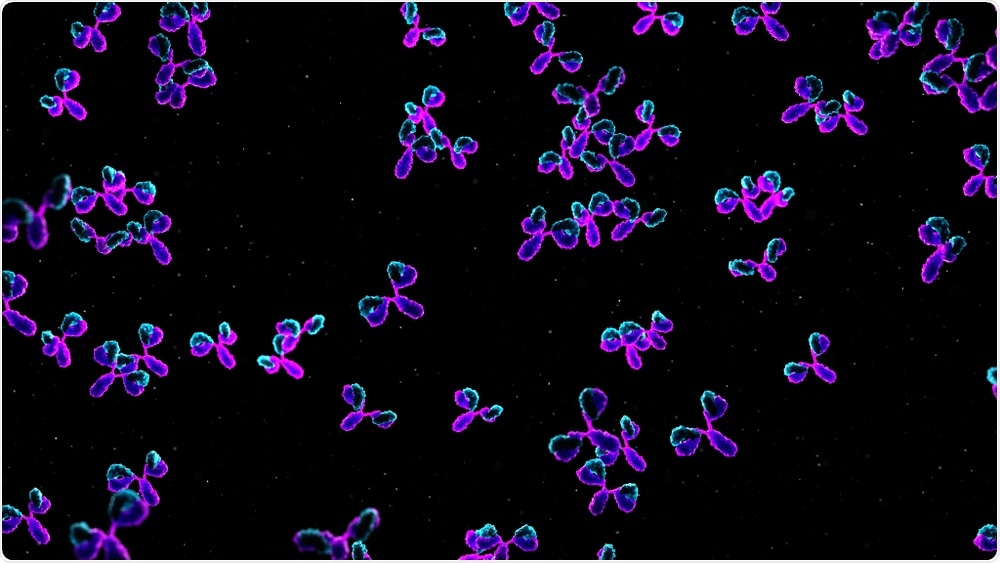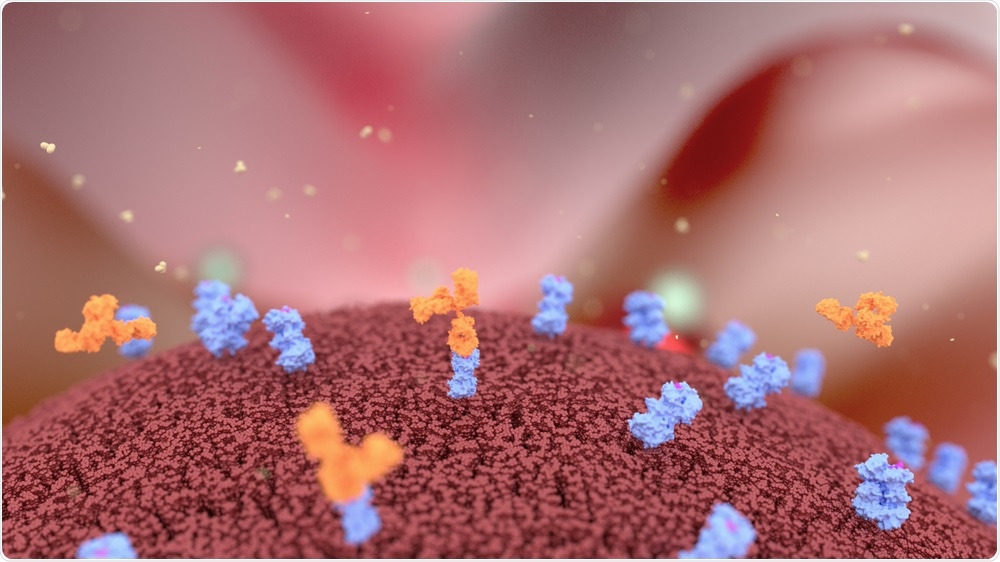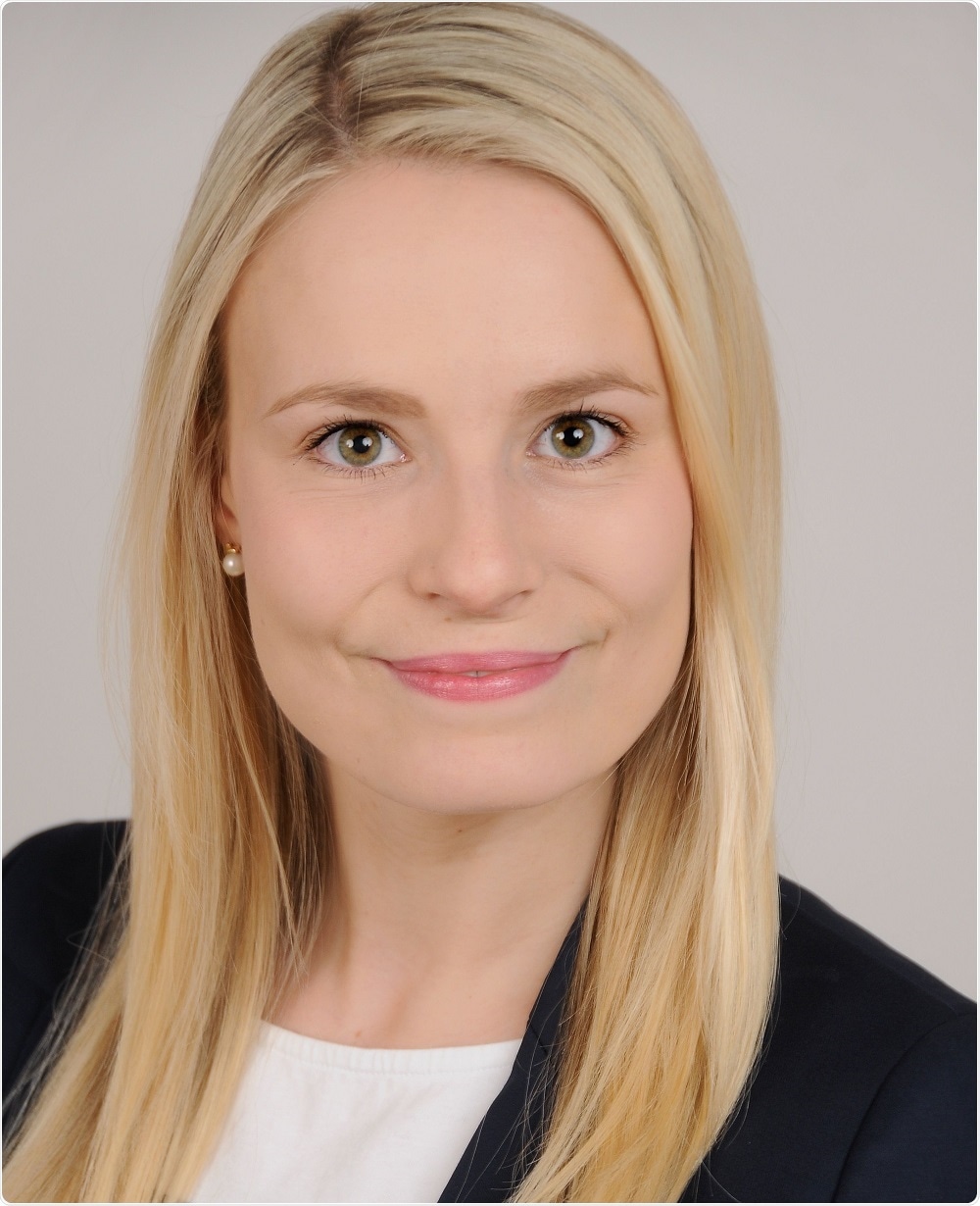An interview with Tina Stoschek and Marcus Gerlach, discussing maximizing monoclonal antibody generation using lab-scale clarification of mammalian cell cultures expressing recombinant antibodies.
Monoclonal antibodies are increasingly important as targeted therapeutics. Please give an overview of this industry and the challenges faced when producing these antibodies at scale.
The production of monoclonal antibodies in varying scale, from small batches in academia and industry up to bulk manufacturing in biopharmaceutical industry is an elaborate process. The recombinant antibodies are expressed in mammalian suspension cells and the cultivation process is more complex compared to bacterial expression systems (e.g. lower cell growth, sensitive cell physiology, complex nutrition).

Shutterstock | Sebastian Kaulitzki
This complexity leads to increased time requirements and higher cost of goods. Process design to a fast, cost-saving and stable biomanufacturing process without loss of product quality and product titer is one of the major challenges.
What work are you doing at Tubulis to improve antibody research and maximize monoclonal antibody generation?
Tubulis is a spin-off project located at the LMU Munich, focusing on the development of next-generation Antibody Drug Conjugates (ADCs). In our research facilities, each individual process step is seen as an elementary factor and is continuously optimized to achieve the best product quality and quantity.
In order to fulfil this requirement, the use of state-of-the-art technologies is essential. Our department is equipped with the infrastructure for efficient upstream process development (USP), downstream process development (DSP) and we established bioanalytic methods for product characterization.
We can boost the manufacturing process at any time by means of scale-up and high-throughput approaches. In addition, we can produce high titers in a short period of time. Despite highly standardized workflows, the on-going optimization of the process is always present – like the implementation of the straight forward cell culture harvest using Sartoclear Dynamics Lab V Kits.
What is Tub-tag® conjugation? Why is it important to be able to conjugate a defined drug-to-antibody ratio?
The Tub-tag® technology enables the development of highly stable and homogeneous ADCs. It is a recombinant, chemoenzymatic conjugation technology enabling site-specific antibody functionalization. In general, the conjugation of highly-potent cytotoxic molecules to a target-specific antibody allows tumor-targeted drug delivery in cancer treatment.

Shutterstock | Alpha Tauri 3D Graphics
The antibody-mediated drug delivery approach decreases the minimum effective dose and potentially reduces the side effects in comparison to conventional chemotherapy. During the last years it has been recognized that site-specific and homogeneous conjugation to antibody-products has the potential to improve the therapeutic index of the resulting antibody-drug-conjugate (ADC).
The drug-to-antibody ratio (DAR) of an ADC can impact the therapeutic efficacy, as unconjugated antibodies reduce potency, while a high DAR can affect pharmacokinetics and cause toxicity. This creates the requirement to control and determine a defined payload distribution of ADCs. With Tub-tag®, Tubulis has developed a next-generation ADC platform technology that addresses current and pressing challenges in ADC conjugation.
Please give an overview of the new lab-scale method for fast filtration from Sartorius. How has this affected your work?
Sartoclear Dynamics Lab V Kits enables a one-step process for cell culture harvesting at lab-scale. The direct addition of diatomaceous earth (DE) to the cell supernatant makes the standard centrifugation step redundant. The harvested supernatant can be directly filtered with a bottle top filter and a vacuum pump.news
During filtration, DE forms a porous filter cake which helps to clarify cells and cell particles and prevents blocking of the filter. The implementation of Sartoclear Dynamics Lab V Kits, harvesting has become a fast and reliable process step in antibody manufacturing.
How does the Sartoclear Dynamics Lab V kit compare with the previous gold standard? What are the advantages and limitations?
The gold standard for cell culture harvesting includes a clarification step via centrifugation to remove cells and larger debris. Especially for higher lab-scale volumes (~ 2000 mL) limited centrifuge space leads to multiple runs and increases the time for clarification.
In a second step, the remaining supernatant is filtrated to remove smaller cell debris. Besides slow flow rates in this step, the main disadvantage is filter clogging what leads to a considerable loss of product and a higher consumption of filter membranes.
Using Sartoclear Dynamic V Lab Kits clarification and filtration is achieved within one step, circumventing the centrifugation step and related issues like centrifuge capacity and availability. Preparation and filtration time are reduced due to a direct addition of DE to cell culture broth and filtration under reduced pressure.
Why is it important to remove cell debris and small particles from the supernatant? How does this affect the end result?
The recovery of the expressed recombinant antibody is a multi-step process, requiring prior-clarification of the cell culture broth to obtain a particle free solution for subsequent protein A affinity chromatography. But beside the removal of submicron particles to avoid high particle load on the protein A column, it has to be considered that a shear-less removal of cells also minimizes the formation of smaller cell debris and furthermore the release of intracellular enzymes or DNA from damaged cells.
A harsh centrifugation step can destruct the cell membrane, leading to the contact of intracellular molecules to the product. In the end, this can lead to altered glycosylation pattern and tertiary structure and functionality changes of the recombinant antibody.
Is there a difference in protein yield or mAb aggregation with the Sartoclear Dynamics Lab V method versus previous methods?
The analysis of DE clarified samples via size exclusion chromatography showed a similar content of high molecular weight species and heavy chain fragment compared to the sample which was harvested with a centrifugation step.
Furthermore, the total IgG titer was determined with analytical protein A affinity chromatography and compared to the conventional clarification method via centrifugation. A higher total IgG titer was determined for the samples clarified with the Sartoclear Dynamics® Lab V Kit.
What limitations are there for the Sartoclear kit?
At the moment, we also use the Sartoclear Dynamics® Lab V Kits for the clarification of lab-scale bioreactor batches (~2000 mL). In this case the harvest of high-density mammalian cell culture samples with Sartoclear Dynamics® Lab V Kits is limited by 1000 mL per Kit. A blockage of the filter membrane was not observed for cell densities of 1*107 c/ml.
What’s next for your research and Tubulis?
Tubulis is currently in the final phase of the preclinical validation of the Tub-tag® technology for the development of next-generation ADCs. Based upon our platform technologies we are working towards developing first proprietary ADCs. In addition, we are interested to partner our technology with interested Biotechnology and Pharma companies.
Where can readers find more information?
About Tubulis: www.tubulis.com
Sartoclear Dynamics: https://www.sartorius.com/en/products/lab-filtration-purification/harvesting-devices

About Tina Stoschek
B.Sc. and M.Sc. of Biology from the Ludwig-Maximilian University Munich (LMU). After her university degree she worked at Roche Pharma dealing with cell culture harvest in industrial scale. Since 2017 she is working for Tubulis®, a spin-off project at the LMU Munich where she is focusing on cell culture cultivation and antibodies.
About Marcus Gerlach
Marcus Gerlach completed his undergraduate studies in Biochemistry at Bielefeld University. After an Internship at the Institute for Molecular Bioscience in Brisbane he completed his doctoral studies at Bielefeld University in the group of Norbert Sewald, focusing on the chemo-enzymatic derivatization of proteins and peptides. Since 2017 he has been working at Tubulis®, developing and characterizing site-specific antibody conjugates for research and cancer treatment.